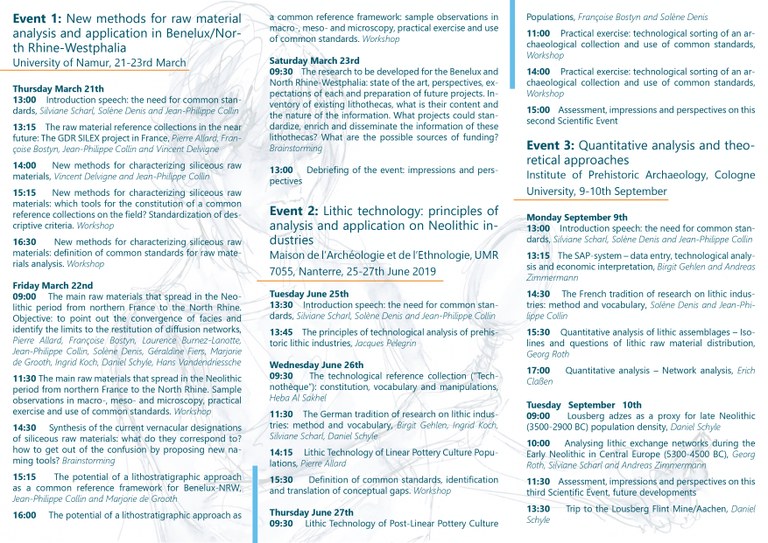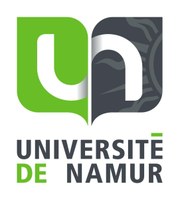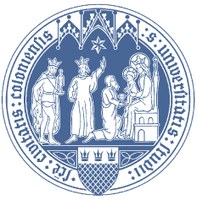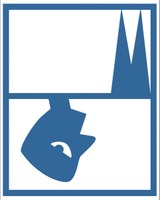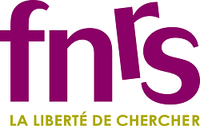International Standards for the techno-economic study of lithic productions in the Neolithic period
Scientific Objectives
Scientific Events for young Researchers of the Franco-German University
Organisation Committee
Solène DENIS, Silviane SCHARL and Jean-Philippe COLLIN (project holders), with Pierre ALLARD, Laurence BURNEZ-LANOTTE, Ingrid KOCH and Daniel SCHYLE
INSTITUTIONS
- LIATEC, Namur University
- CNRS, UMR 7055 Prehistory and Technology
- Institute of Prehistoric Archaeology, Cologne University
Scientific Objectives
From the 6th to the 3rd millennium BC, the Neolithic corresponds to a vast stream of innovations that have affected human societies in temperate Europe. The study of the material culture of these Neolithic populations reveals the existence of very extensive exchange networks. The latter are particularly visible through the sphere of lithic productions. However, the recognition of the circulation of siliceous products is closely related to advances in the characterization of raw materials on the one hand, and technological studies on the other. The study of the networks for the diffusion of raw materials therefore contributes to highlighting the mobility and connectivity of agro-pastoral communities during the Neolithic. The triptych (identification of raw materials/technological analysis/confrontation with theoretical data and modelling) constitutes a rapidly expanding research dynamic for a detailed understanding of the socio-economic organization of Neolithic populations. However, while diffusion networks transcend our national borders, there is currently no cross-border academic training. This project of scientific events for young researchers therefore aims at developing international standards for the analysis of lithic assemblages and at promoting exchange and collaboration beyond the national borders of the area concerned. These standards will be based on the development of commonly agreed criteria creating a modus operandi for the description and analysis of raw materials and technological characteristics. With this in mind, we will seek to pool the highly complementary specific scientific expertise of each of the three institutions involved in this project. In addition, we hope, that the young researchers will also benefit from the intergenerational transmission of this complementary knowledge, since experienced and international renowned experts will take part in the projected workshops.
NAMUR, 21-23rd MARCH 2019
New methods for raw material analysis and application in Benelux/North RhineWestphalia
The first event will take place at the LIATEC laboratory of the University of Namur and will focus on analyzing raw materials used by Neolithic societies. On the one hand, new methods for characterizing siliceous raw materials will be presented based on various scales of observation (macroscopy, mesoscopy and microscopy). These multiscalar analyses essentially aim to assign a flint to its geological formation stratum as well as its gitological origin. By contextualizing the lithostratigraphy in the geological space concerned by the project, the geological and geographical origins of the flint raw material selected by the Neolithic societies under consideration is to be specified. This heuristic approach is very promising for the Benelux and North Rhine-Westphalia as it can be used as a tool to define potential raw material sources. Identifying the most relevant and easy-to-apply analytical criteria for archaeologists will lead us to reconsider the potential of lithothecas for researchers. It will then be necessary to define a common vocabulary and standards starting from a joint systematic discussion of the existing ones to adapt our lithothecas by harmonizing the information currently available. This event will be an opportunity to show the potential and necessity of the resulting common basis as a starting point for analysing the circulation of raw materials during the Neolithic. Exercises with raw material samples from the area under study will put the participants in a position to use and adjust the common standards to their own data.
PARIS NANTERRE, 25-27th JUNE 2019
Lithic technology: principles of analysis and application on Neolithic industries
The second event will take place at the Maison de l'Archéologie et de l'Ethnologie in Nanterre and will focus on the principles of technological analysis of lithic material. The first part of this learning will include a general presentation of the principles of technological analysis of prehistoric lithic industries and their potential for anthropological reflections on past societies. The second day will be the first opportunity to present the new tool of the Prehistory and Technology laboratory: the “technothèque”. The examination of the vocabulary and classification used in this database, will facilitate the definition of standard analysis criteria by comparing them with the methods developed in the German research tradition. Then, the presentations will focus on chrono-cultural contexts common to our study regions to consider the heuristic potential of technological analysis to shed light on the mechanisms of raw material diffusion. These presentations will be systematically illustrated by a direct comparison with the corresponding archaeological material. Practical exercises in the technological sorting of industries will be proposed.
COLOGNE, 9-10th SEPTEMBER 2019
Quantitative Analysis and theoretical Approaches
The third event will take place at the Institute of Prehistoric Archaeology of the University of Cologne. Emphasis will be placed on quantitative analysis and theoretical approaches in order to discuss more general models on raw material diffusion (mainly exchange networks). With this in mind, an introduction to quantitative analysis will be given focused on the application in lithic analysis, as e.g., GIS-analysis (calculation of isolines) or network analysis. In addition, current theoretical models and approaches to interpreting data on lithic assemblages will be presented and discussed critically in order to refine archaeological conceptualization of exchange processes. The workshop in Cologne will close with a trip to the Neolithic flint mine at the Lousberg/Aachen.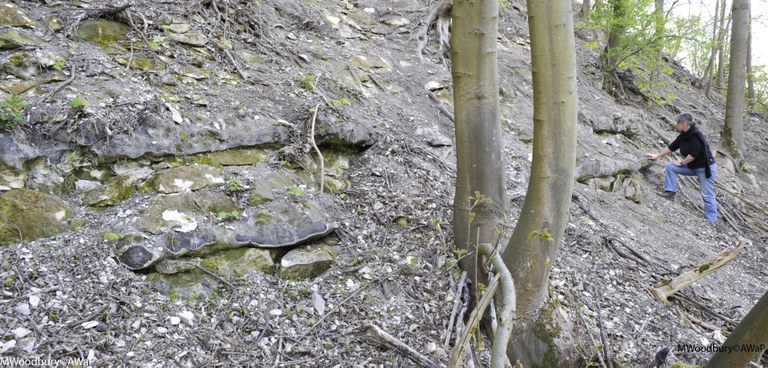
Program
Event 1: New methods for raw material analysis and application in Benelux/North Rhine-Westphalia, University of Namur, 21-23rd March 2019
Thursday March 21st: new methods and the need for common practice
11:00 - Welcome of participants
13:00 - Introduction speech: the need for common standards, Silviane Scharl, Solène Denis & Jean-Philippe Collin
13:15 - The raw material reference collections in the near future: The GDR SILEX project in France, Pierre Allard, Françoise Bostyn, Jean-Philippe Collin & Vincent Delvigne
14:00 - New methods for characterizing siliceous raw materials, Vincent Delvigne & Jean-Philippe Collin
15:15 - New methods for characterizing siliceous raw materials: which tools for the constitution of a common reference collections on the field? Standardization of descriptive criteria. Workshop
16:00 - Break
16:15 - New methods for characterizing siliceous raw materials: definition of common standards for raw materials analysis. Workshop
Friday March 22nd: The main raw materials that spread in the Neolithic period from northern France to the North Rhine.
09:00 - Raw materials from northern France: origin, characterization and distribution networks during Neolithic times. Pierre Allard & Françoise Bostyn
09:25 - Lithic raw materials in the Scheldt valley? New interdisciplinary research perspectives. Hans Vandendriessche, Géraldine Fiers & Liesbeth Messiaen
10:45 - Raw materials from the Mons Basin : between discoveries and issues. Jean-Philippe Collin & Solène Denis
11:05 - Break
11:20 - Characterization of flint raw material exploited in the Early Neolithic in Hesbaye : the archaeological problems. Pierre Allard &Laurence Burnez-Lanotte
11:40 - Who is afraid of 50 shades of grey? (Ep.2) The raw materials from Limburg. Marjorie de Grooth
12:05 - All quiet in the Eastern Front? The raw materials from North Rhine-Westphalia. Birgit Gehlen, Ingrid Koch, Silviane Scharl & Daniel Schyle
12:30 - Lunch
13:30 - Sample observations in macro-, meso- and microscopy. The use of common standards. Workshop
16:00 - Break
16:15 - Synthesis of the current vernacular designations of siliceous raw materials. How to get out of the confusion? Brainstorm
Saturday March 23rd: statement and perspectives
09:30 - The lithotheques: inventory and perspectives. Brainstorm
10:30 - Raw material characterization: state of the art, perspectives and expectation. Brainstorm
12:00 Lunch
13:00 Debriefing of the event.
Event 2: Lithic technology: principles of analysis and application on Neolithic industries, Maison de l’Archéologie et de l’Ethnologie, UMR 7055, Nanterre, 25-27 th June 2019
Tuesday June 25th
11:30 Welcome of participants
13:30 Introduction speech: the need for common standards, Silviane Scharl, Solène Denis and Jean-Philippe Collin
13:45 The principles of technological analysis of prehistoric lithic industries, Jacques Pelegrin
Wednesday June 26th
09:30 The technological reference collection (“Technothèque”): constitution, vocabulary and manipulations, Heba Al Sakhel
11:00 Break
11:30 The German tradition of research on lithic industries: method and vocabulary, Birgit Gehlen, Ingrid Koch, Silviane Scharl, Daniel Schyle
13:00 Lunch
14:15 Lithic Technology of Linear Pottery Culture Populations, Pierre Allard
15:30 Definition of common standards, identification and translation of conceptual gaps. Workshop
Thursday June 27th
09:30 Lithic Technology of Post-Linear Pottery Culture Populations, Françoise Bostyn and Solène Denis
10:45 Break
11:00 Practical exercise: technological sorting of an archaeological collection and use of common standards, Workshop
13:00 Lunch
14:00 Practical exercise: technological sorting of an archaeological collection and use of common standards, Workshop
15:00 Assessment, impressions and perspectives on this second Scientific Event
Event 3: Quantitative analysis and theoretical approaches, Institute of Prehistoric Archaeology, Cologne University, 9-10th September 2019
Monday September 9th
11:30 Welcome of participants
13:00 Introduction speech: the need for common standards, Silviane Scharl, Solène Denis and Jean-Philippe Collin
13:15 The SAP-system – data entry, technological analysis and economic interpretation, Birgit Gehlen and Andreas Zimmermann
14:30 The French tradition of research on lithic industries: method and vocabulary, Solène Denis and Jean-Philippe Collin
15:00 Break
15:30 Quantitative analysis of lithic assemblages – Isolines and questions of lithic raw material distribution, Georg Roth
17:00 Quantitative analysis – Network analysis, Erich Claßen
18:00 Dinner
Tuesday September 10th
09:00 Lousberg adzes as a proxy for late Neolithic (3500-2900 BC) population density, Daniel Schyle
10:00 Analysing lithic exchange networks during the Early Neolithic in Central Europe (5300-4500 BC), Georg Roth, Silviane Scharl and Andreas Zimmermann
11:30 Assessment, impressions and perspectives on this third Scientific Event, future developments
12:30 Lunch
13:30 Trip to the Lousberg Flint Mine/Aachen, Daniel Schyle
Speakers
Pierre Allard
Researcher, CNRS, UMR 7055
Heba Al Sakhel
temporary Researcher, CNRS, UMR 7055
Françoise Bostyn
Research Engineer, INRAP, UMR 8215
Laurence Burnez-Lanotte
Professor, Unamur, LIATEC, UMR 8215
Jean-Philippe Collin
PhD Student, Unamur, LIATEC, Paris 1 Panthéon Sorbonne University, UMR 8215
Erich Claßen
Director, LVR-State Service for Archaeological Heritage
Vincent Delvigne
postdoctoral Researcher, Liège University, Bordeaux University, UMR 5199
Solène Denis
postdoctoral Researcher, Unamur, LIATEC, UMR 7055
Géraldine Fiers
PhD Student, Ughent
Marjorie de Grooth
Researcher, retired curator of the archaeological department, Bonnefantenmuseum, Maastricht
Birgit Gehlen
postdoctoral Researcher, Institute of Prehistoric Archaeology, Cologne University
Ingrid Koch
independent researcher, affiliated to the Institute of Prehistoric Archaeology, Cologne University
Jacques Pelegrin
Research Director, CNRS, UMR 7055
Georg Roth
postdoctoral Researcher, Institute of Prehistoric Archaeology, Free University Berlin
Silviane Scharl
Professor, Institute of Prehistoric Archaeology, Cologne University
Daniel Schyle
Researcher, Neanderthal Museum and Institute of Prehistoric Archaeology, Cologne University
Hans Vandendriessche
PhD Student, Ughent
Andreas Zimmermann
Professor em., Institute of Prehistoric Archaeology, Cologne University
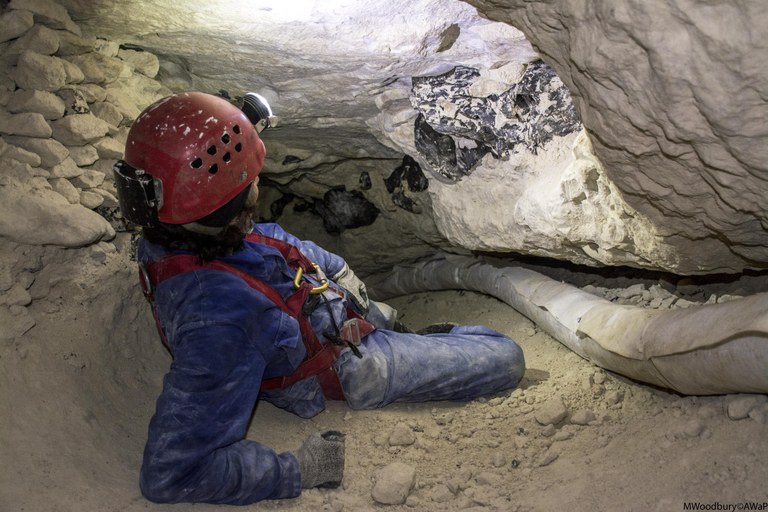
Registrations
The proposed Scientific Events will be open to all young researchers from Master to postdoctoral fellows and current researchers. Travel and accommodation costs can be partly funded by the project (24 participants at a max). The selection of participants will be based on a short letter of motivation. Please note that applications for all 3 events will be given priority. Call for applications closes on 20th January 2019.
Letters must either be sent to solene.denis@unamur.be or can be completed on the following form.
Your participation can be validated as part of your doctoral training
This event is supported by the Franco-German University (UFA/DFH).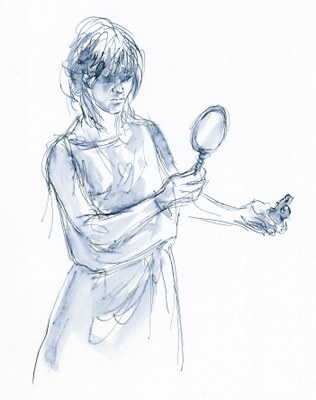
Dessin et conception graphique : C. Swijsen, Unamur

